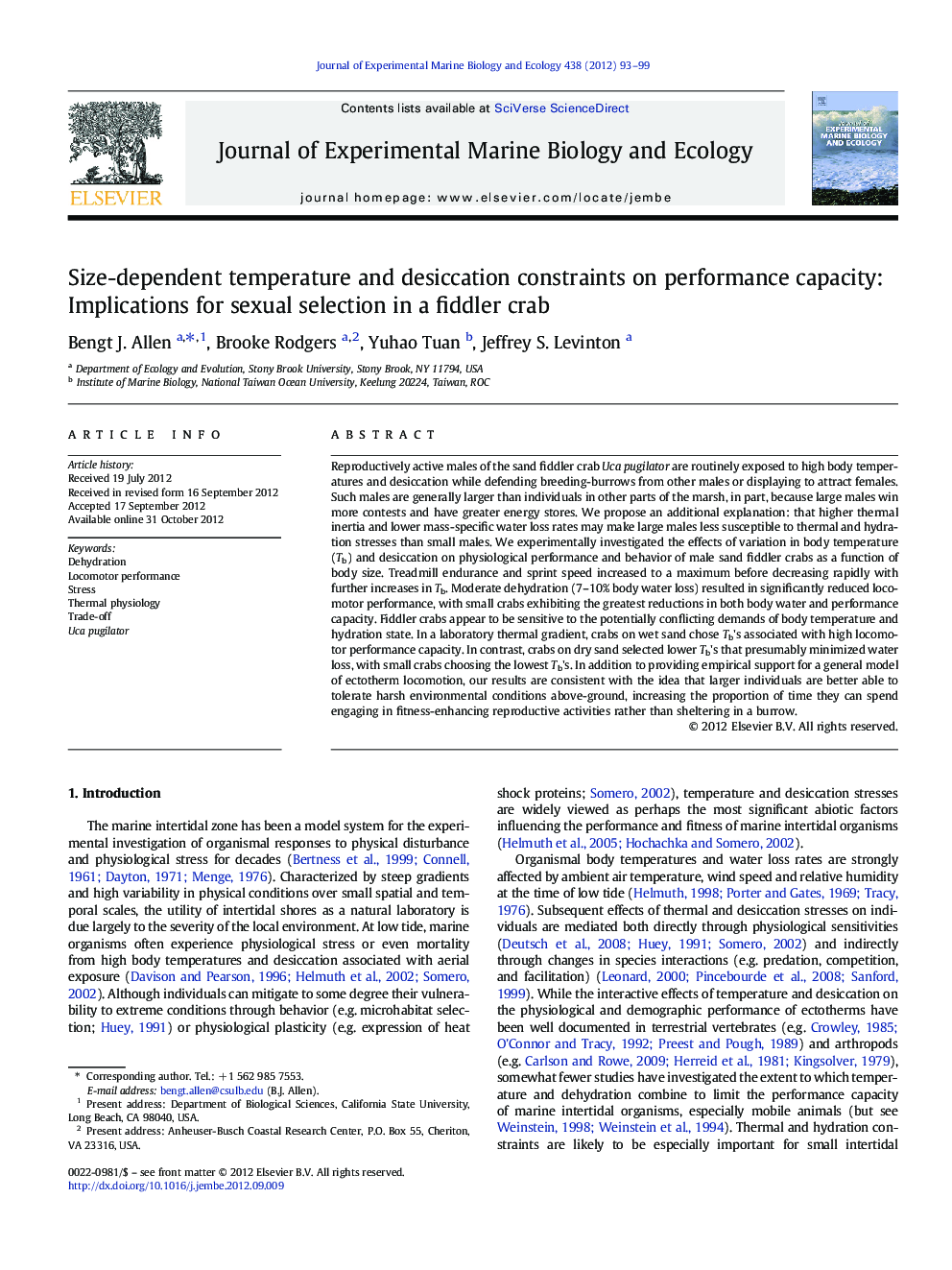| کد مقاله | کد نشریه | سال انتشار | مقاله انگلیسی | نسخه تمام متن |
|---|---|---|---|---|
| 4395839 | 1618437 | 2012 | 7 صفحه PDF | دانلود رایگان |

Reproductively active males of the sand fiddler crab Uca pugilator are routinely exposed to high body temperatures and desiccation while defending breeding-burrows from other males or displaying to attract females. Such males are generally larger than individuals in other parts of the marsh, in part, because large males win more contests and have greater energy stores. We propose an additional explanation: that higher thermal inertia and lower mass-specific water loss rates may make large males less susceptible to thermal and hydration stresses than small males. We experimentally investigated the effects of variation in body temperature (Tb) and desiccation on physiological performance and behavior of male sand fiddler crabs as a function of body size. Treadmill endurance and sprint speed increased to a maximum before decreasing rapidly with further increases in Tb. Moderate dehydration (7–10% body water loss) resulted in significantly reduced locomotor performance, with small crabs exhibiting the greatest reductions in both body water and performance capacity. Fiddler crabs appear to be sensitive to the potentially conflicting demands of body temperature and hydration state. In a laboratory thermal gradient, crabs on wet sand chose Tb's associated with high locomotor performance capacity. In contrast, crabs on dry sand selected lower Tb's that presumably minimized water loss, with small crabs choosing the lowest Tb's. In addition to providing empirical support for a general model of ectotherm locomotion, our results are consistent with the idea that larger individuals are better able to tolerate harsh environmental conditions above-ground, increasing the proportion of time they can spend engaging in fitness-enhancing reproductive activities rather than sheltering in a burrow.
► Reproductive male fiddler crabs are often exposed to thermal and hydration stresses.
► Treadmill endurance and sprint speed were maximized at intermediate temperatures.
► Moderate dehydration significantly reduced locomotor performance.
► Small crabs exhibited greatest reductions in body water and performance capacity.
► Crabs selected lower temperatures in dryer conditions; small crabs chose the lowest.
Journal: Journal of Experimental Marine Biology and Ecology - Volume 438, 30 December 2012, Pages 93–99